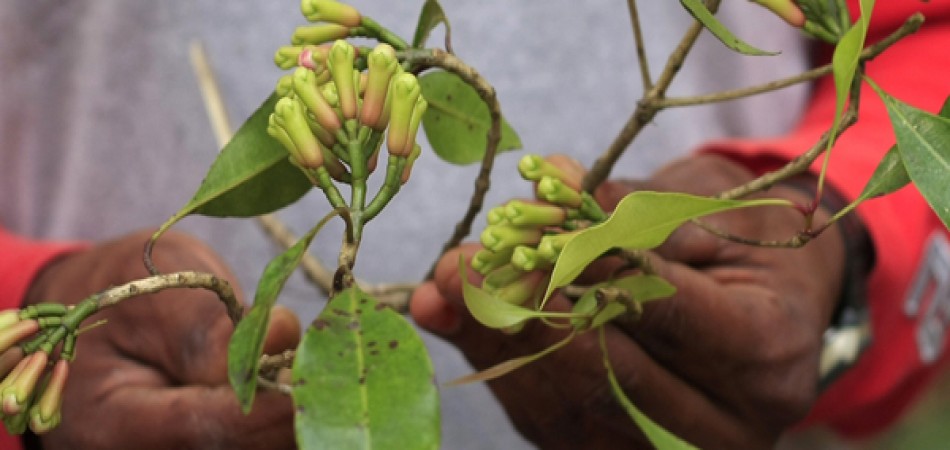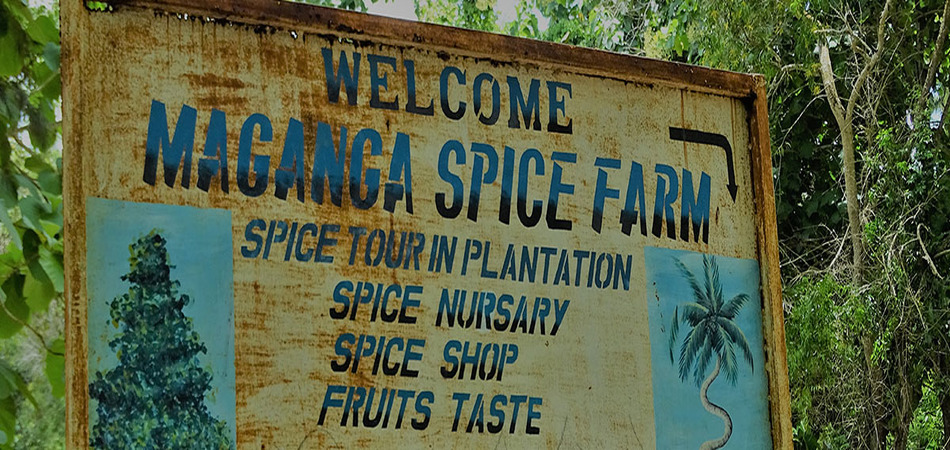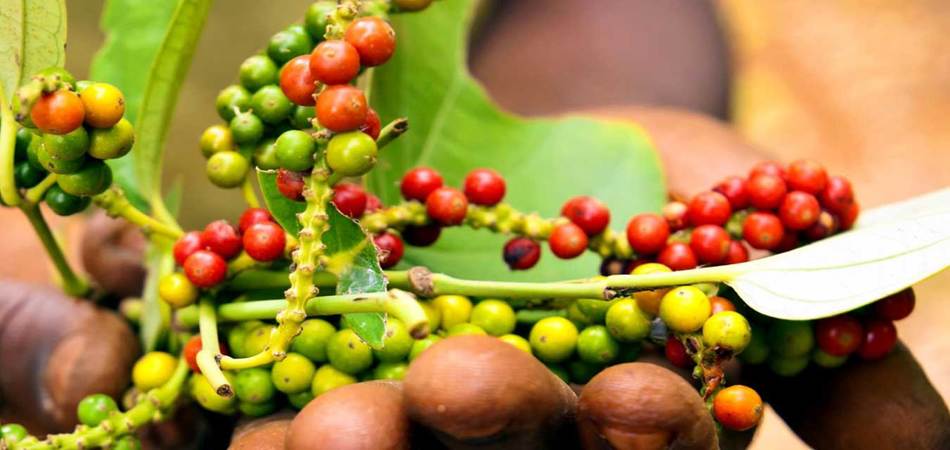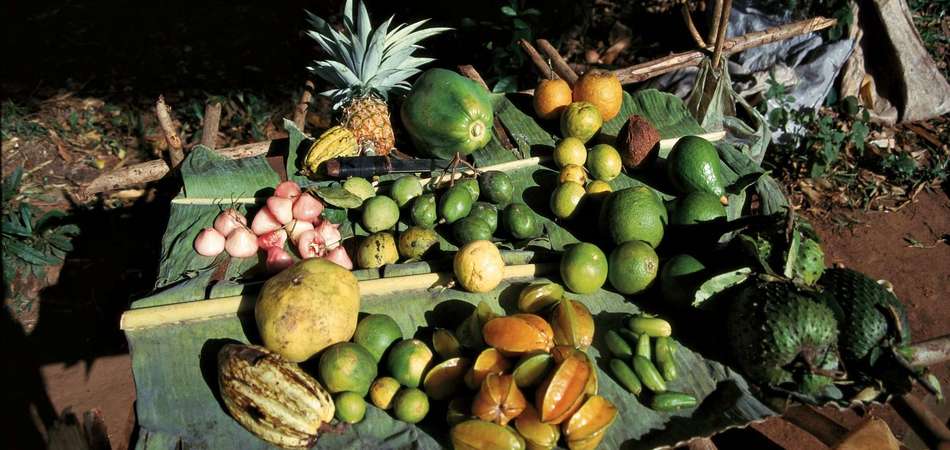Spice Plantation Tour

Discover the Spice Tour Zanzibar: An Aromatic Adventure
Zanzibar, an enchanting archipelago off the coast of Tanzania, is famed not only for its breathtaking beaches and rich cultural heritage but also for its flourishing spice trade. A Spice Tour in Zanzibar provides an unforgettable opportunity for visitors to dive deep into the island's fragrant world, where they can experience the cultivation, harvesting, and diverse uses of the spices that have shaped its historical and economic landscape. This article explores the significance of spices in Zanzibar, the immersive experience of a spice tour, the economic benefits of spice cultivation, and the cultural aspects tied to these aromatic gems.
The Importance of Spices in Zanzibar
Known as the "Spice Island," Zanzibar has a storied history as a vital hub for the spice trade since the 19th century. The island's favorable climate, marked by warm temperatures and plentiful rainfall, creates perfect conditions for growing a variety of spices, including cloves, nutmeg, cinnamon, and black pepper. Cloves, in particular, have been instrumental in Zanzibar's economy, with the island once supplying over 90% of the world's clove production.
The significance of spices goes beyond economics; they are intricately woven into the cultural identity of Zanzibar. These spices have greatly influenced local cuisine, traditional medicine, and social rituals. For example, spices enhance flavors in cooking and aid in food preservation in the tropical heat. Additionally, many spices possess medicinal properties that local communities have relied on for generations. Understanding this rich heritage enhances visitors' appreciation of the Spice Tour Zanzibar experience.
The Spice Tour Experience
Embarking on a Spice Tour Zanzibar is an engaging sensory adventure. Typically, the journey begins in lush plantations situated in the interior of the island, where knowledgeable guides provide insights into the cultivation and harvesting of various spices. Visitors often enjoy hands-on experiences, allowing them to touch, smell, and taste spices directly from their source.
As guests wander through the vibrant fields, they are enveloped by the intoxicating aroma of cloves and the sweet scent of cinnamon bark. Guides share fascinating stories about each spice's background and applications, enriching the experience with connections to the island's history. Witnessing traditional harvesting methods—like scaling tall trees for nutmeg or delicately plucking clove buds—offers a glimpse into the labor-intensive processes that sustain this essential industry.
Many tours also incorporate a culinary aspect, where participants learn to integrate these spices into traditional dishes. Cooking demonstrations often highlight Zanzibari recipes that celebrate the island's rich culinary diversity. This interactive experience not only deepens visitors' appreciation for spices but also equips them with cooking skills they can bring home.
The Economic Benefits of Spice Cultivation
The spice industry is a cornerstone of Zanzibar's economy, providing livelihoods for thousands of local farmers and workers. Despite challenges like fluctuating global prices and competition from synthetic substitutes, spice cultivation continues to flourish on the island. The economic impact extends beyond individual employment; it fosters community development through sustainable farming initiatives and eco-tourism.
Recently, there has been a push towards organic farming practices among spice growers. This transition not only improves the quality of the spices but also caters to the growing demand from environmentally conscious consumers. As tourists flock to Zanzibar for its natural beauty and cultural richness, spice tours have become a major attraction that supports local economies while educating visitors about sustainable practices.
Moreover, the government has recognized the importance of preserving Zanzibar's spice heritage. Policies have been implemented to support farmers and boost spice exports, investing in infrastructure and marketing strategies to strengthen the island's position in the global spice market while ensuring that local communities reap the rewards of this profitable industry.
Cultural Significance of Spices
In Zanzibar, spices are more than just commodities; they carry deep cultural significance that goes beyond their economic worth. The island's diverse population—encompassing African, Arab, Indian, and European influences—has woven a rich tapestry of culinary traditions, with spices playing a pivotal role. Each culture uniquely incorporates spices into their daily lives, from festive celebrations to traditional dishes, showcasing the integral role of spices in the vibrant life of Zanzibar.
Embark on a spice tour Zanzibar and discover a world where history, culture, and flavor intertwine, creating an unforgettable experience that echoes the island's rich heritage.
Frequently Asked Questions About Spice Tour Zanzibar
Q: What can I expect to see and do on the Spice Tour Zanzibar?
A: On the Spice Tour Zanzibar, you'll embark on an unforgettable journey through lush spice plantations. You'll learn about the cultivation and harvesting of spices like cloves, nutmeg, and cinnamon. Enjoy tastings of unique spices and tropical fruits, and witness live demonstrations on how these spices are integral to local cuisine and traditional medicinal practices.
Q: How long does the Spice Tour usually last?
A: The Spice Tour Zanzibar generally lasts between 2 to 4 hours. The duration may vary based on the specific itinerary and the number of spice farms included in your tour.
Q: Are there any age restrictions for participants?
A: There are no strict age restrictions for the Spice Tour Zanzibar. We do recommend that young children be accompanied by an adult. This enriching experience is suitable for all ages, making it a perfect family outing.
Q: What should I wear and bring on the tour?
A: For your Spice Tour Zanzibar, we recommend wearing comfortable, breathable clothing and closed-toe shoes appropriate for walking. Don’t forget essentials like sunscreen, a hat, and a refillable water bottle to keep hydrated while exploring.
Q: Who can I contact for customer support or to make a booking?
A: To get customer support or make a booking for the Spice Tour Zanzibar, please reach out to our dedicated customer service team via email or phone. Our contact details are conveniently listed on our website, and we're here to help with any questions or reservations you may have.
What to See in Spice Farm Zanzibar: A Guide to the Aromatic Experience
Zanzibar, the stunning archipelago off the coast of Tanzania, is famous not just for its pristine beaches but also for its vibrant spice trade. When exploring what to see in Spice Farm Zanzibar, visitors can fully immerse themselves in the island's aromatic wonders. The Spice Tour provides a unique opportunity to discover the cultivation, harvesting, and diverse uses of the spices that have significantly influenced Zanzibar's history and economy. This article highlights the significance of spices in Zanzibar, what to expect on a spice tour, the economic impact of spice farming, and the cultural richness associated with these aromatic treasures.
The Importance of Spices in Zanzibar
Often called the "Spice Island," Zanzibar has been a major spice trade hub since the 19th century. Boasting a warm climate and fertile soil, the island is home to an array of spices, including cloves, nutmeg, cinnamon, and black pepper. Cloves, in particular, have been essential to Zanzibar's economy, contributing to over 90% of the world's supply historically.
The significance of spices goes beyond economic benefits; they are intricately woven into Zanzibar’s cultural fabric. Spices enhance local cuisine, serve as traditional medicine, and even influence social customs. They play a vital role in preserving food in the tropical climate and are recognized for their medicinal properties, forming an essential part of local traditions. Understanding this rich history enhances the spice tour experience and helps visitors appreciate what to see in Spice Farm Zanzibar.
What to Expect on the Spice Tour
When you embark on a spice tour in Zanzibar, prepare for an immersive journey that engages all your senses. Tours typically commence in lush plantations, where knowledgeable guides introduce visitors to the cultivation and harvesting of spices. Participants are encouraged to touch, smell, and taste various spices directly from the source, making it a hands-on experience.
As you wander through verdant fields, the captivating scents of cloves and cinnamon envelop you. Guides share fascinating stories about each spice's history and uses, offering a deeper connection to the island’s past. Visitors will also witness traditional harvesting techniques, like climbing tall trees for nutmeg or carefully plucking clove buds, providing insight into the labor that supports this vital industry.
Many spice tours also feature a culinary component, allowing participants to learn how to incorporate spices into local dishes. Cooking demonstrations often showcase traditional Zanzibari recipes, enriching the experience and giving visitors the chance to take home a piece of Zanzibar through their newfound culinary skills.
The Economic Benefits of Spice Cultivation
Spice farming plays a crucial role in Zanzibar's economy, sustaining the livelihoods of thousands of local farmers and workers. Despite facing challenges like fluctuating global prices and competition from synthetic alternatives, spice cultivation remains strong. The economic benefits extend beyond direct employment, contributing to community development through sustainable farming practices and eco-tourism initiatives.
There is a growing emphasis on organic farming among spice growers, enhancing the quality of spices and appealing to environmentally conscious consumers. As tourists flock to Zanzibar for its natural beauty and cultural experiences, spice tours have become a key attraction that supports local economies while educating visitors on sustainable practices.
Moreover, the government recognizes the importance of preserving Zanzibar's spice heritage, implementing policies to support farmers and promote spice exports. By investing in infrastructure and marketing, authorities aim to strengthen the island’s presence in the global spice market, ensuring that local communities benefit from this thriving industry.
Cultural Significance of Spices
In Zanzibar, spices are more than mere commodities; they carry profound cultural significance. The island’s diverse population, influenced by African, Arab, Indian, and European traditions, has created a rich tapestry of culinary practices where spices play a central role. Each culture incorporates spices into daily life in unique ways, from festive celebrations to everyday cooking.
In conclusion, if you're pondering what to see in Spice Farm Zanzibar, prepare for an enlightening experience that celebrates the island's aromatic legacy. From engaging spice tours to exploring the cultural richness behind spice cultivation, your visit will be a memorable journey into the heart of Zanzibar's spice heritage.
Prices & Inclusions for Your Spice Plantation Tour
Prices:
Our Spice Plantation Tour starts at an affordable price of $20 per person. This 3-hour guided private tour offers an immersive experience into the world of spices.
Inclusions:
The price for the Spice Plantation Tour includes the following:
- Boat fee
- Guiding fee
- Entrance fee
- Conservation fee
- A trained, friendly, and professional guide
- All government fees and taxes
Additionally, we can arrange hotel pickup and drop-off based on your request. Our tours also feature multilingual guides fluent in English, French, Italian, German, Russian, and Spanish.
Note:
You can enhance your experience by combining this tour with a visit to the Stone Town tour, Prison Island, or Jozani Forest. Book your unforgettable Spice Plantation Tour today!
TERMS & CONDITIONS
Cancellations
Client Cancellations: To cancel a booked tour or excursion, clients must submit a written request to us. This written cancellation request is essential for acknowledgment. Please note that cancellations may incur a percentage deduction from the total tour cost.
Our Cancellations: We may only cancel a booked tour under unusual and unpredictable circumstances. We strive to prevent such occurrences. If a cancellation is necessary, we will promptly communicate an alternative date for the tour.



